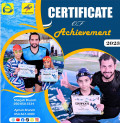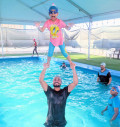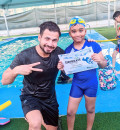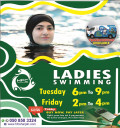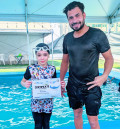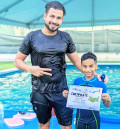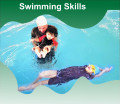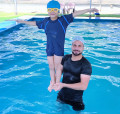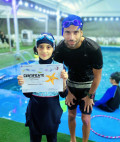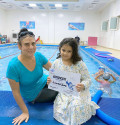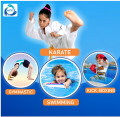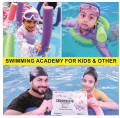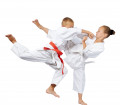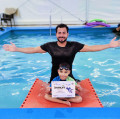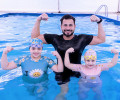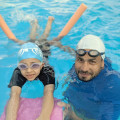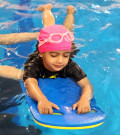
Proper Nutrition for Active Swimmers
2022-12-24 - Food HabitsProper nutrition is important for swimmers for a number of reasons. First and foremost, it is essential for maintaining energy levels and supporting optimal physical performance in the pool. Adequate nutrition can help swimmers maintain a healthy body weight, recover from workouts and competitions, and support the overall health and well-being of their bodies.
Swimmers need to consume a balanced diet that includes a variety of nutrients, inclusive of carbohydrates, protein, and healthy fats. Carbohydrates are important for providing energy needed to fuel the intense workouts and competitions, while protein is necessary for muscle repair and recovery. Healthy fats, such as those found in nuts, seeds, and avocados, can also help support overall health and performance.
In addition to a balanced diet, it is also important for swimmers to stay hydrated by drinking plenty of water. Dehydration can negatively impact physical performance and increase the risk of injury.
Overall, proper nutrition is an essential part of any swimmer's training and competition routine and can help support optimal physical performance and overall health and well-being.
Nutrition intake:
The individual nutrition requirements depend on the training sessions that is being followed. It also depends on factors like physique, training goals, body composition, and age. Swimmers must have a nutrition rich breakfast, a light snack prior to training will also do. Nutritious breakfast is essential for maximising performance, especially during key training sessions. When appetite is poor, liquid meal drinks becomes useful for the comfort of stomach and providing the required energy.
Taking into consideration the busy schedules of an individual – work or study, the meals and snacks need to be prioritised as ‘on the run’ to optimise fuelling and recovery. Wholegrain breakfast cereal along with fruit, vegetables, nuts, seeds will provide important vitamins and minerals, along with some healthy fats.
Hydration:
Swimmers should drink fluids before, during and after training and events in order to stay hydrated. Body fluid needs depends on individual fluid losses which in turn depends on individual sweat rate. Since swimming session depend mainly on water-based environment, it can be difficult to analyse the sweat loss. It is essential for swimmers to carry water bottles during training sessions and competitions and be easily accessible to them. This will ensure that they consume the adequate fluids at regular periods.
Water is sufficient for most workouts and training sessions. One can also opt sports drinks since they provide carbohydrate for fuel and electrolytes and fluid for hydration goals.
Eating prior to swimming
A meal rich in carbohydrate must be had by swimmers 2 to 4 hours prior to a swimming competition and fluids (mainly water) should be sipped regularly. Foods that are consumed should be relatively low in fibre and fat to avoid stomach discomfort. An appropriate pre-race meal can include the following:
· English muffin with jam or cheese
· Porridge with banana and cinnamon
· Fruit salad with yoghurt and nuts
· Wholegrain breakfast cereal with milk + fruit
· Sandwich/roll with salad + lean meat/cheese
As a final effort to top up the energy levels, a small snack can also be eaten up to in the 1-2 hours prior to a race. This can include the follows:
Fresh fruit
Rice cakes with nut butter
Muesli or sports bars
Dried fruit & nut mix
If swimmers are a little nervous, a liquid source of protein and carbohydrate such as a fruit smoothie will be a good option, instead of a solid intake.
Swimmers must utilise every opportunity to eat and drink between events. Moreover, a diet plan can be prepared that fits individual requirements and meets with the competition schedule as well. This should be practiced during training sessions to help cope with the needs that arise during major events.
Always maintain an option that is light and easy to digest. Carbohydrate rich liquids may be preferred as they are rapidly digested from the gut.
Sports drink
Juice
Flavoured milk tetra packs
Yoghurt pouches
Dried fruit like banana chips
Small pieces of fresh fruit like grapes or banana
A more substantial meal can be eaten, if the hours of the competition are to exceed more than an hour, in order to top up energy needs and avoid getting hungry.
Pasta/noodle-based dishes
Sandwiches with simple fillings
Sushi or rice paper rolls
A swimmer can always carry cooler bag with drinks and food packed and kept easily accessible for topping them up with energy and fluids throughout the day.
Nutrition intake is a priority, not only during but also after the race:
The nutrition taken after race can be termed as recovery nutrition as it makes up for the energy lost. This intake is vital in cases where competitions are held over several days with heavy training and practise. The same goes with this type of nutrition too, i.e.., carbohydrate acting as the fuel, protein intake for helping muscle repair and fluids and electrolytes which will replace the losses of sweat.
Recovery food that can make up the loss include:
· Dairy-based fruit smoothie
· Homemade pizzas with chicken, cheese + veggies
· Ham, cheese, and salad roll or wrap
· Omelettes or poached eggs on toast
It is important for swimmers to listen to their bodies and choose snacks that work for them. It will be difficult to rely on a venue to provide appropriate choices. Fruit that provides a quick energy boost, energy bars with high-quality ingredients and minimal added sugars, nuts and seeds are a good source protein, plain yogurt which is a good source of protein – anything can be carried along but do ensure they are a healthy choice. Ensure to have plenty of water or sports drinks as it is equally important to stay hydrated.
Having less body fat can help improve a swimmer's power-to-weight ratio, which can make them more agile and able to generate more force in the water. Low body fat will be favourable as agility, power and technique can be attained by this. However, it is important for swimmers to maintain a healthy body fat percentage and not try to reduce their body fat to extreme levels. Swimmers need a certain amount of body fat to maintain good health and perform at their best. Reducing body fat too low leads to health problems, such as low energy levels, and compromised immune system.
It is important for swimmers to focus on maintaining a balanced diet and training program that helps them maintain a healthy body weight and body composition. This can include a mix of strength training, endurance training, and proper nutrition to support muscle growth and recovery..







.jpg)




















